ceramics + classics student22 + polytheist + they/them
Don't wanna be here? Send us removal request.
Text




Various Greek (and Roman) masks of Dionysus in terracotta, ivory, bronze and amber.
1K notes
·
View notes
Text
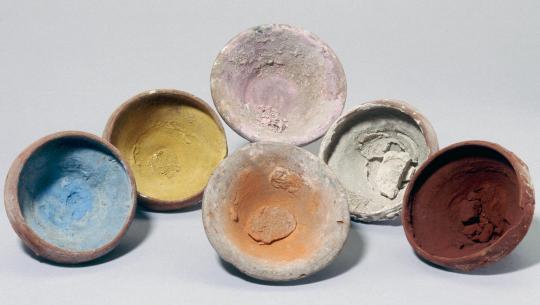
~ Pottery bowl containing paint, once belonging to a fresco painter.
Period: Roman
Date: A.D. 1st century
Place oforigin: Egypt
12K notes
·
View notes
Text
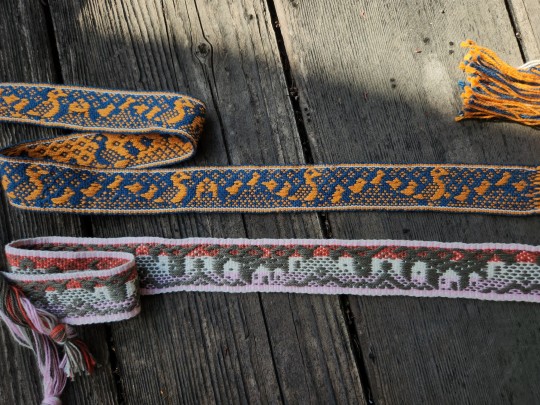


Learning how to weave! After a brief attempt at card weaving, I discovered pick-up weaving and immediately switched over to weaving with a heddle. And since I need to make everything as complicated as possible, I'm working on creating my own patterns as I learn.
Still figuring out how to maintain an even tension when I move my set up around. Ultimately, I'll get a loom and that should solve most of my issues. They're a tad wonky, but I'm pleased with my patterns and excited to come up with more! :))
11K notes
·
View notes
Text

František Kupka, 1871-1957
La guirlande d´Aphrodite, 1919, watercolor, ink, carton, 13x10 cm
Private Collection
34 notes
·
View notes
Text





Sitting Hare 🐇
(sculpted 22' finished 24')
cone 02 terracotta clay, underglaze
460 notes
·
View notes
Text

Kanathia Festival
Every year there was a procession from Argos to Nauplia. Priestesses of Hera and attendants would escort the statue of Hera to the spring Kanathos where they would bathe her image according to the sacred purification rites. It is said when the statue emerged from the water Hera Teleia became a maiden once more, Hera Parthenos, pure and virginal.
Come now, graceful Horai, goddesses of the heavenly chorus come to Hera’s grove with your pitchers and oils Let us cleanse the great queen of the seasons past and cover her in the softest silks until, shining anew, she emerges in all her glory
It is assumed this purification ritual is to prepare Hera for her marriage to Zeus. In modern day it is believed the spring is the one that runs through a nunnery, Agia Moni.

Please note: a name for this ritual is not currently known. I chose Kanathia among other suggestions for this ritual as a nod to its namesake, the Kanathos spring. This is a festival specific to the Argolid. Pausanias 2.38.2-3
51 notes
·
View notes
Text
Any of you ever seen this painting?

It's "Andromache" by Rochegrosse and it shows the moment where Andromache is violently torn away from her child Astyanax at the end of the Trojan War. Odysseus is watching the scene from the top of the stairs, waiting for the child to throw it from the ramparts of Troy.
I've seen the original a couple years ago in Rouen, France and let me tell you, I'm not much of an art enthusiast but this painting, this scene and this imaging is haunting my mind to this day. Few paintings have ever left me speechless and this is one of them
2K notes
·
View notes
Photo

Paul Émile Chabas (French, 1869-1937)
Two Young Girls with a Starfish
1K notes
·
View notes
Text
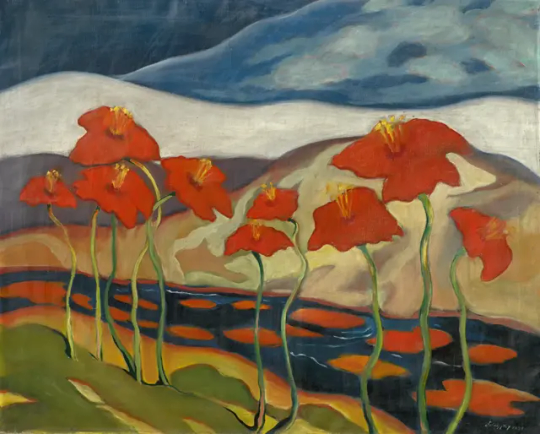
Zoltán Palugyay - Landscape with Flowers (1930)
360 notes
·
View notes
Text
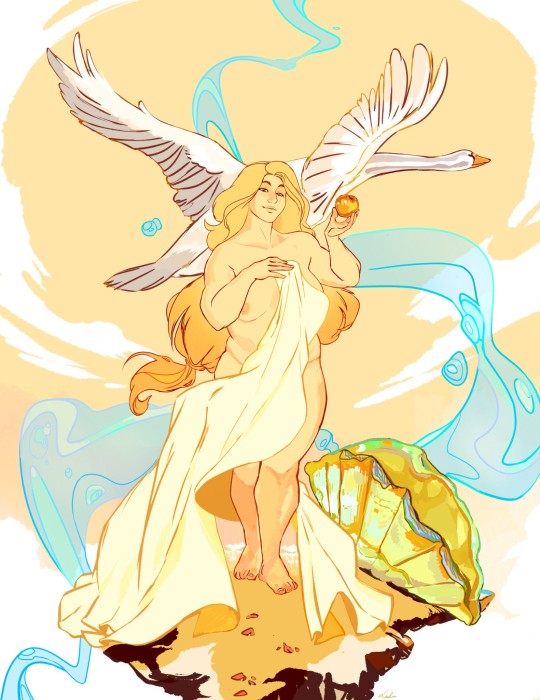
Aphrodite, godess of Beauty, godess of grace, she'll throw apples at your face
1K notes
·
View notes
Text

Winslow Homer (American, 1836-1910)
Summer Night, 1890
2K notes
·
View notes
Text
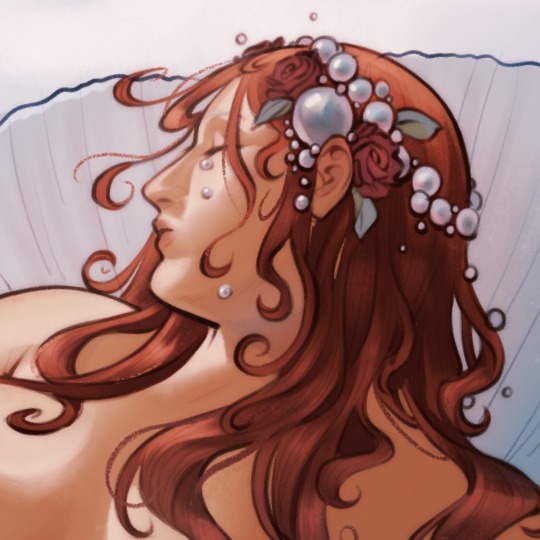
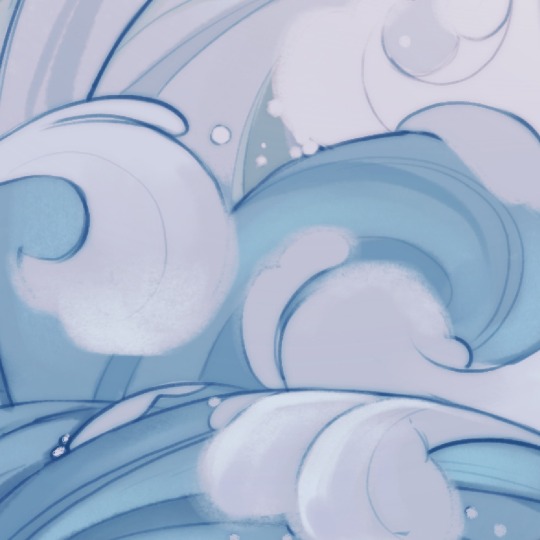

Birth of Venus 🩵✨
One of the rare instances a school assignment actually turns out good
5K notes
·
View notes
Text

‘burning at the fresh awareness of elsewhere’, 2023, rug tufted wool and embroidery thread on hessian fabric, 90cm x 145cm (instagram)
4K notes
·
View notes
Photo

Headband with Heads of Gazelles and a Stag Between Stars or Flowers ca. 1648–1540 B.C. Second Intermediate Period
During the late twelfth and then the thirteenth dynasty, late in the Middle Kingdom, people from western Asia established themselves among the Egyptian inhabitants of the eastern Nile Delta, especially at a place later called Avaris (now Tell el-Dab'a). A multicultural mix was thus established that culminated during Dynasty 15 in the rule of a line of kings now known as the Hyksos (from the Egyptian phrase “rulers of foreign lands”) who resided at Avaris but dominated a good part of northern and middle Egypt, while the south remained under the indigenous Dynasty 17 of Thebes. The northern “Hyksos” culture combined Egyptian and Middle Bronze Age Levantine traditions. This diadem, with animal heads alternating with flowers, has Near Eastern affinities and is typical of the commingling of artistic styles.
432 notes
·
View notes
Text
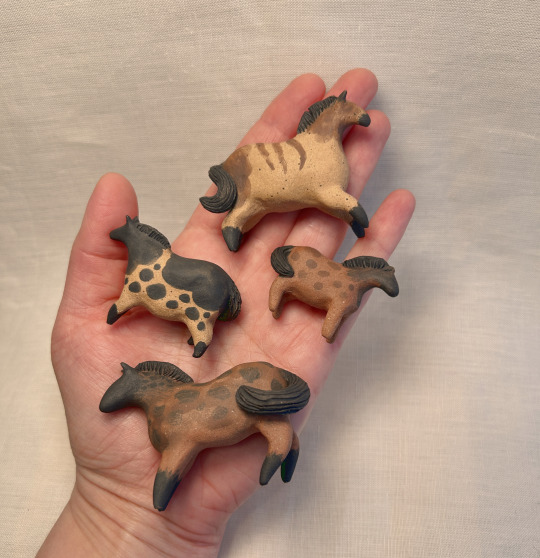
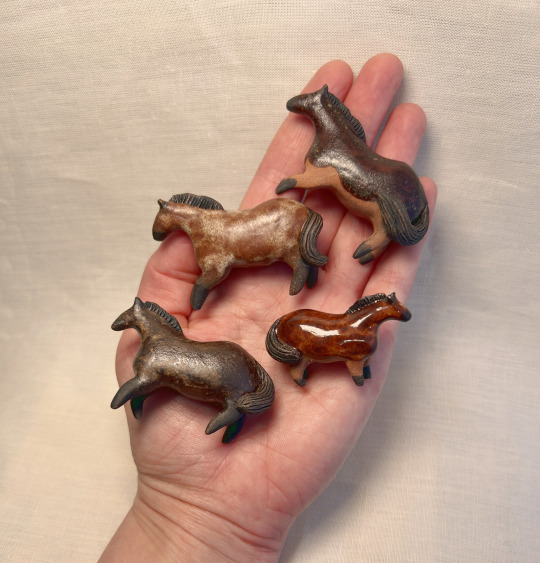

Did I ever post the finished Lascaux (& etc) horses here?!
This first batch of them will be available in my next shop update, but there are more getting bisque-fired tomorrow that should be going into the shop in mid-April alongside a couple more cave painting mugs :)
15K notes
·
View notes

